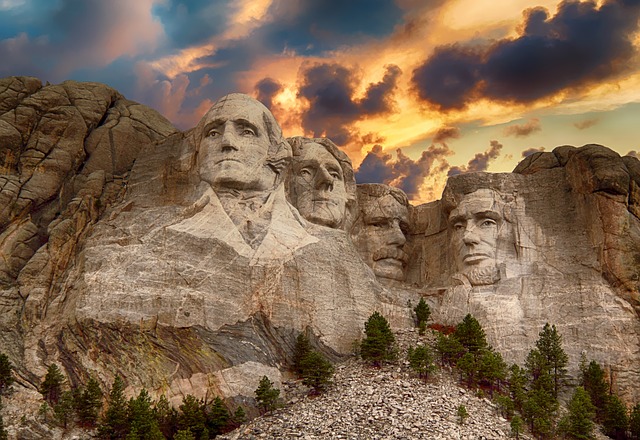
When I write or speak publicly
against bipartisanship in Australian defence policy, the most common response is, ‘Why would we want our politics to be more like America’s?’ Which would be a fair point, except that the United States, like Australia, has long held its defence policy at arm’s length from its democracy. But, as Damir Marusic
notes in an engaging piece, this is changing:
Over the next few years, America’s role in the world will have less to do with any discernible set of overarching values or ideology. Its behavior will be the product of an increasingly (small-d) democratized and hotly contested domestic politics.
Marusic is an interesting and original thinker, but on this piece he echoes a very common and mainstream trope: security and defence issues are rightly the preserve of the elite and public participation is almost always a problem.
We’re so used to an absence of democratic voices in foreign policy, and of holding up an ideal of carefully planned, holistic grand strategies, that the fundamentally anti-democratic nature of this approach passes without notice.
While I’m one of those self-proclaimed elite, and no enemy of careful strategic planning, I have to rebel against this anti-democratic tendency. Not only is the sentiment against American and Australian founding principles, it also stands in contrast to their own successful histories. America’s rise to power from the 18th to the 20th century was one of insistent democratic contest about the direction of the nation. Even once it had stabilised its position atop the global hierarchy, there were fierce contests and ‘
strategies of containment’ rather than a single coherent plan that everyone followed.
What Marusic rightly picks up, however, is that for the last 20–30 years, these democratic forces have been kept at the margins. And look at the result. The Clinton years are widely seen as a wasted indulgence, the Bush years as incompetent hubris. The ‘War on Terror’ grinds on, China has comfortably risen to peer competitor status and progress on any of the major global problems—Kashmir, Palestine, Korea, Taiwan, UN reform, climate change, etc., etc.—has been rare. President Barack Obama made little headway in solving these problems, or even in
overcoming elite controls on foreign policy.
Fed up, the people are now seemingly determined to reassert control. In 2008, Obama listened and Senator John McCain didn’t. Obama won the election. In 2016, Trump listened, while Hillary Clinton claimed to have. Trump won. Those within the mainstream view may wish, as Marusic does, to label the coming years as an era of ‘America the erratic’. And that may be true. But more importantly, it will be an era of ‘America the democratic’.
The period of elite control didn’t lead American foreign policy to the promised land. Now we’re in precisely the kind of period where concentrated, rigid strategic policy settings make the least sense. As we’re regularly reminded by officials and commentators,
‘the scale and pace of change is unprecedented’. And yet bizarrely, those who most commonly mouth such sentiments seem to insist that American policy must be one of stability and reassertion of the status-quo.
The world has indeed changed, so why should America’s global posture remain the same? Why, given the mounting ledger of failures over the last 20 years, would we want it to? How can it make sense to declare the need for ever-greater flexibility and adaptability, while insisting that the most powerful country in the world hold firm to positions it took in the 1950s?
I ask that quite literally. Just last week there was an
outcry at the thought of moving US troops from the Korean peninsula, some of whom are stationed where their grandfathers were camped as the ceasefire was declared in 1953.
America’s problems today are often debated in terms of ‘power’ and ‘position’. These are visible and easy to debate. More or fewer ships? Asia or the Middle East? More important, though harder to spot, is the problem of ‘purpose’. What is America’s role? Why is this the right role for the US at this time? How is this role able to inspire those who need to be inspired? (That applies primarily to the American people, but also to allies and influential non‑aligned states.)
Democratic publics may not be efficient, but they’re much more capable than their elites at identifying what truly matters to those who bear the costs in wealth, body and soul for a nation’s stance in the world.
America needs change. Its international policy settings are divorced from the strategic environment, from public opinion and from its resource capacity. Those who want America to stay firmly involved in the world—as I do—have even more incentive than the radical isolationist to want change. It is
the conservative creed: ‘A state without the means of some change is without the means of its own conservation.’ US power isn’t being conserved because it isn’t being changed.
America has nearly unrivalled power and position. But without clear purpose, without an ability to discard that which is no longer important or unable to secure support from home, it will remain an over-extended and weakening power. Doubling down—as Washington has over recent years—has only exacerbated the problems. Only genuine democratic debate can find a new and enduring purpose and role.
American foreign policy hasn’t been subject to the same partisan polarisation as the rest of its turgid politics. That may be beginning to change and it will carry costs. Policies will shift, promises will be broken and the parties will be pushed towards absolutist positions.
The opportunities, however, are also substantial in the coming era of ‘America the democratic’. In a follow‑up post, I want to explore what this may mean for Australia and its alliance with America.
 Print This Post
Print This Post